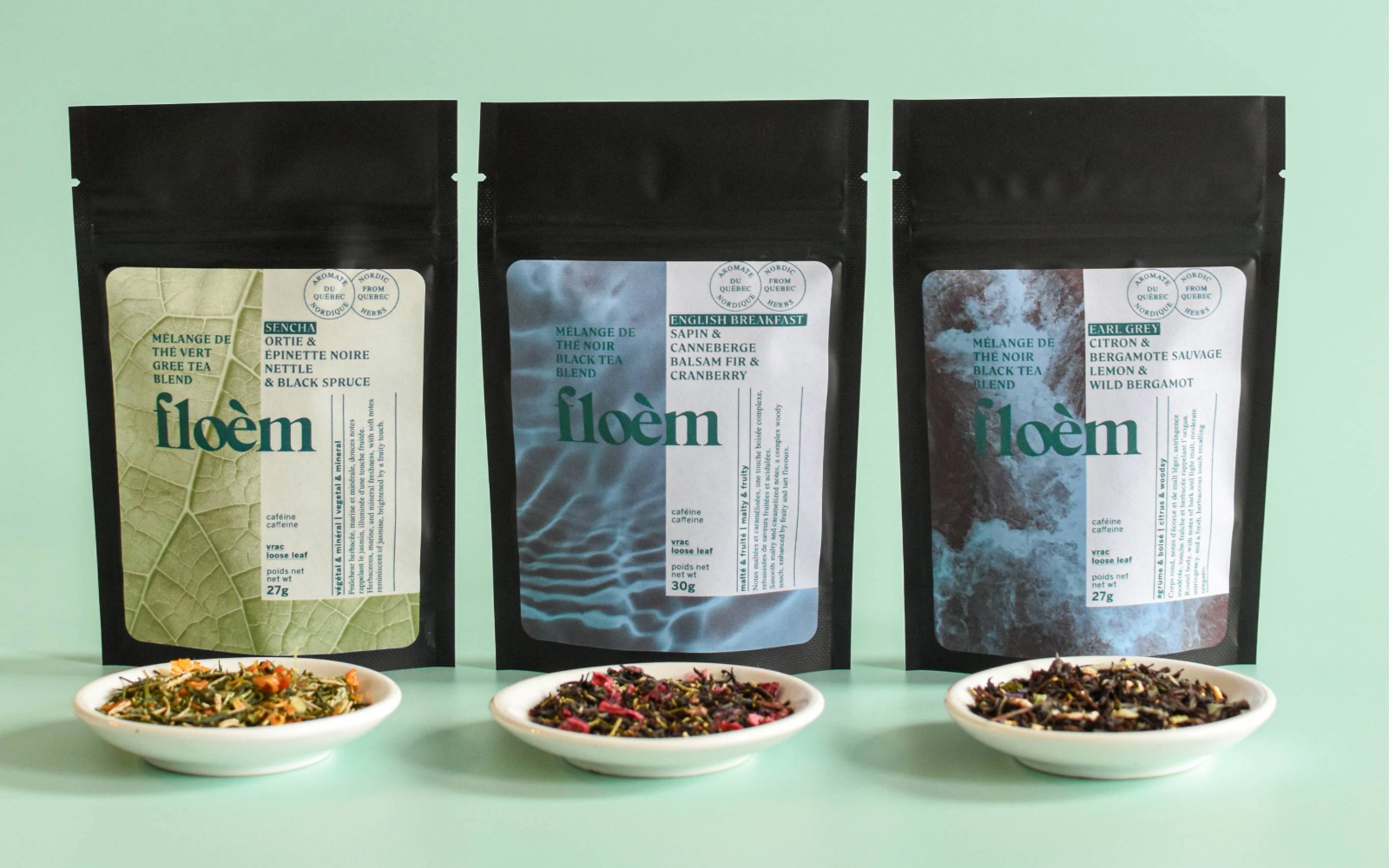
Herbal Tea or Tea? Navigate the World of Northern Infusions
Imagine yourself in the heart of a lush boreal forest, the fresh air scented with resinous notes and damp earth. Holding a warm beverage in your hands, you'll be overcome by a feeling of profound well-being. Is it a comforting tea or an herbal tea with ancestral virtues? Welcome to a taste journey where the boundaries between these two worlds are sometimes subtle, but where each sip is an invitation to discovery.

Introduction
Since the dawn of time, men and women have drawn from nature the ingredients necessary to prepare infusions with healing and flavorful properties. Whether a full-bodied black tea or a delicately flavored herbal tea, these hot beverages have spanned the ages and cultures, inviting themselves onto our tables as rituals of well-being and conviviality.
But what's the difference between a herbal tea and a tea? While these two terms are often used interchangeably, they actually refer to beverages with very distinct origins and properties. This article offers a deep dive into this fascinating world to help you better understand the specificities of each beverage and choose the option best suited to your needs and desires.
We'll explore the botanical origins of tea and herbal tea, their respective chemical compositions, and their potential health benefits. We'll also introduce you to Floèm, a Quebec company passionate about discovering and showcasing the ingredients of boreal flora, and guide you in choosing the ideal beverage for every occasion.
Whether you are a seasoned tea lover or a curious novice, this journey to the heart of boreal flavors will reveal all the secrets of these ancient beverages and invite you to explore a world of well-being and taste pleasure.
What fundamentally distinguishes tea from herbal tea?
To fully understand the differences between tea and herbal tea, it's essential to understand their botanical origins and preparation methods. While both types of infusions share the same goal—to provide us with a moment of comfort and pleasure—their compositions and properties are actually very different.
Botanical origin: a question of plants
The first fundamental distinction between tea and herbal tea lies in their botanical origin. Tea, in the strict sense of the term, always comes from the leaves of the Camellia sinensis , a shrub native to Asia. Depending on the variety of Camellia sinensis used and the processing methods applied to the leaves, we obtain different types of tea:
-
Black tea : The leaves are completely oxidized, which gives them a dark color and a strong taste.
-
Green tea : The leaves are not oxidized, which allows them to retain their green color and a fresher, more vegetal taste.
-
White tea : The young buds and first leaves are naturally dried, giving them a delicate and subtle flavor.
-
Oolong tea : The leaves are partially oxidized, which gives them a complex and nuanced taste, halfway between green tea and black tea.
Herbal tea, on the other hand, refers to any infusion prepared from plants other than Camellia sinensis . These include flowers (chamomile, lavender ), leaves (peppermint, lemon balm), roots (ginger, licorice), bark (cinnamon, birch), fruits (rosehip, hibiscus), or seeds (fennel, anise). The diversity of plants that can be used to prepare herbal teas is immense, offering an almost infinite range of flavors and potential benefits.
Some infusions, such as rooibos (from a South African shrub) and mate (from a South American plant), are often considered teas due to their taste and stimulating properties. However, it is important to note that they are not derived from the Camellia sinensis and therefore technically belong to the category of herbal teas. How do you know if it's tea or herbal tea? Just look at the composition. If the plant Camellia sinensis is not present, it is an herbal tea.

Chemical composition: caffeine and other active compounds
Aside from their botanical origins, tea and herbal tea are also distinguished by their chemical composition. Tea naturally contains caffeine, a stimulant that can improve concentration, reduce fatigue, and increase alertness. The amount of caffeine varies depending on the type of tea: black tea generally contains more than green or white tea.
Herbal teas, on the other hand, generally do not contain caffeine unless they are mixed with tea or other stimulating herbs such as guarana or mate. They are therefore an excellent option for those who wish to avoid the stimulating effects of caffeine, especially in the evening before bed.
In addition to caffeine, tea and herbal tea contain other active compounds that may have beneficial effects on health. Tea is rich in antioxidants, particularly catechins, which can help protect cells from free radical damage. Herbal teas, on the other hand, contain a variety of active compounds specific to each plant, such as essential oils, flavonoids, vitamins, and minerals. Why shouldn't you drink tea every day? Why is tea no longer considered safe? What are the negative side effects of herbal tea? Will tea disrupt autophagy? It's important to note that excessive tea consumption can interfere with the absorption of iron and other minerals. Additionally, some herbal teas may interact with medications or be inadvisable for pregnant or breastfeeding women.
The preparation process: infusion, decoction, maceration
The way tea and herbal tea are prepared can also influence their flavors and properties. Infusion is the most common preparation method: it involves pouring hot water over the leaves, flowers, or other parts of the plant and letting it steep for a few minutes. The steeping time and water temperature may vary depending on the type of tea or herbal tea used.
Decoction is a longer and more intense preparation method, which involves boiling the plant parts (roots, bark, seeds) in water for about ten minutes. This method allows the active compounds to be extracted from the tougher parts of the plant.
Cold maceration is a gentle alternative to infusion and decoction. It involves steeping herbs in cold water for several hours, or even overnight. This method preserves the delicate aromas and active compounds that are sensitive to heat. Why not steep the tea for too long? Steeping too long can make the tea bitter and release excess tannins.
Health benefits: beyond simple taste pleasure
Tea and herbal tea aren't just delicious and comforting beverages—they can also have health benefits. For centuries, traditional medicines have used plants to prevent and treat many ailments. Today, modern science is confirming some of these properties and highlighting new potential benefits.
The virtues of teas: energy, concentration, cardiovascular protection
Tea, thanks to its richness in antioxidants and caffeine, can offer many health benefits:
-
Protection against cellular aging : Antioxidants in tea, especially catechins found in high amounts in green tea, help neutralize free radicals, unstable molecules that can damage cells and accelerate the aging process.
-
Improved cognitive performance : The caffeine in tea stimulates the central nervous system, improving concentration, memory, and alertness. It can also reduce fatigue and improve mood.
-
Prevention of cardiovascular diseases : Studies have shown that regular tea consumption can help reduce the risk of cardiovascular disease by improving blood vessel function, reducing cholesterol levels and lowering blood pressure.
Why drink two cups of green tea a day? Why drink green tea in the morning? Is tea good for your health? Moderate consumption of green tea can provide health benefits thanks to its antioxidants and stimulant properties.
The benefits of herbal teas: relaxation, digestion, restful sleep
Herbal teas, on the other hand, offer an even wider range of potential benefits, depending on the plants used:
-
Calmness and relaxation : Chamomile, lavender, and lemon balm are known for their calming and relaxing properties. They can help reduce stress, anxiety, and sleep disturbances.
-
Improved digestion : Peppermint, ginger, and fennel can relieve digestive upsets such as bloating, nausea, and stomach pain.
-
Immune system support : Echinacea, thyme, and elderberry are known for their immune-boosting properties. They can help strengthen the body's natural defenses and prevent infections.
Is chamomile tea a real tea? Is it good to drink tea in the evening? Is herbal tea harmful to the kidneys? Which is better? Why not drink herbal tea in the evening? Which is the best herbal tea to drink in the morning? Chamomile tea is not a real tea, but an herbal tea with calming properties that can promote sleep. It is generally not recommended to consume diuretic herbal teas in the evening, as they can disrupt sleep.

Herbal teas and specific teas: meeting specific needs
Certain herbal teas and teas are particularly suited to meeting specific needs:
-
Detoxification : Dandelion, birch, and artichoke can help stimulate liver function and eliminate toxins from the body.
-
Strengthening immunity : Echinacea, ginger, and green tea can strengthen the body's natural defenses and prevent infections.
-
Weight loss : Green tea, mate, and guarana can help boost metabolism, burn fat, and reduce appetite.
Which teas are good for inflammation? Which tea or herbal tea helps you lose weight? Green tea and ginger are known for their anti-inflammatory properties. Green tea, yerba mate, and guarana can promote weight loss by boosting metabolism and reducing appetite.
Floèm: an invitation to explore the unique flavors of the boreal forest
At the heart of this exploration of teas and herbal teas, it's impossible not to mention Floèm, a Quebec company whose mission is to discover and showcase the ingredients of boreal flora. Guided by a passion for nature and a deep respect for the environment, Floèm offers unique and authentic infusions that celebrate the richness and diversity of Nordic flavors.
The Labrador leaf: a little-known treasure with many facets
The key ingredient in Floèm infusions is Labrador leaf, a wild plant that grows abundantly in the boreal forests of Quebec. Used for centuries by Indigenous peoples for its medicinal and aromatic properties, this plant is a truly unsung treasure with many facets.
Labrador leaf is distinguished by its resinous, floral, and slightly spicy fragrance. Its tough, evergreen leaves are hand-harvested by experienced pickers, who take care to preserve the resource and respect the ecosystem.
In addition to its taste, Labrador leaf also has interesting health properties. It is rich in antioxidants, essential oils, and other active compounds that may have beneficial effects on the immune system, digestion, and sleep. Scientific studies are underway to better understand these properties and confirm their effectiveness.
Floèm blends: a symphony of boreal flavors
Floèm doesn't just offer pure Labrador leaf infusions. The company has also created original and bold blends that combine the flavors of Labrador leaf with those of other boreal plants, such as Labrador tea, juniper berries, wild mint, and balsam fir.
Each Floèm infusion is a true symphony of flavors, evoking the magnificent landscapes and captivating aromas of the boreal forest. The blends are carefully crafted to offer a unique and harmonious taste experience, inviting relaxation and contemplation.
To fully enjoy the flavors and benefits of Floèm infusions, it is recommended to prepare them with hot water (around 90°C) and let them infuse for 5 to 7 minutes. You can also add a touch of honey or maple syrup to sweeten the taste and enhance the aromas.
Floèm infusions can also be used to create original cocktails, delicious desserts, or creative savory dishes. Let your imagination run wild and explore the endless possibilities of these boreal ingredients!

Floèm's commitment: sustainability, respect for the environment, community
Floèm is a company deeply committed to sustainable development and respect for the environment. The company strives to minimize its impact on the planet and support local communities.
Floèm's harvesting practices are based on principles of sustainability and resource conservation. Harvesters are trained to harvest plants responsibly, preserving biodiversity and avoiding overexploitation of resources.
Floèm also works closely with Quebec's Indigenous communities, promoting their traditional know-how and supporting their economic development. The company is committed to respecting the rights and cultures of Indigenous peoples and promoting a fair and equitable model of economic development.
Transparency and traceability of ingredients are also fundamental values for Floèm. The company is committed to providing clear and accurate information on the origin, composition, and production methods of its products.
How to Choose Between Tea and Herbal Tea: A Personalized Guide
With so many different teas and herbal teas available on the market, it can be difficult to make an informed choice. Here are some tips to help you identify your needs and preferences and choose the option that best suits your tastes:
Listen to your body: identify your specific needs
The first step in choosing between tea and herbal tea is to listen to your body and identify your specific needs:
-
The time of day : If you need a boost to start the day, tea is a great option thanks to its caffeine content. If you're looking to relax and prepare for sleep, a soothing herbal tea is better.
-
Your health goals : If you want to boost your immune system, choose herbal teas rich in vitamins and antioxidants. If you're looking to improve your digestion, opt for herbal teas made with peppermint or ginger.
-
Your personal tastes : Feel free to explore the different flavors and aromas of teas and herbal teas to find the ones you like best. You can also create your own blends by combining different plants and spices.
Is herbal tea healthier than regular tea? Can you drink herbal teas every day? Herbal tea may be healthier than regular tea for those who want to avoid caffeine. Daily consumption of herbal teas is generally safe, but it's important to vary the herbs used to avoid adverse effects.
Explore the different options: tasting and discovery
The best way to choose between tea and herbal tea is to taste and discover them for yourself. Here are some ideas for exploring the different options:
-
Visit local markets, herbalists, specialty shops These places are full of quality teas and herbal teas, often produced by passionate artisans. You can discover unique flavors and benefit from the expert advice of the salespeople.
-
Take part in tasting and blend creation workshops : These workshops are an excellent opportunity to learn to recognize the different flavors and aromas of teas and herbal teas, and to create your own personalized blends.
-
Read labels and find out where the ingredients come from The quality of teas and herbal teas depends largely on the quality of the ingredients used. Choose products from organic farming or sustainable wild harvesting.
How do you know if it's tea or herbal tea? Is chamomile tea a real tea? Which tea or herbal tea helps you lose weight? What's the difference between green tea and chamomile tea? Which tea is healthier? Which teas are good for inflammation? Which is the best tea or herbal tea? To distinguish tea from herbal tea, check if the plant Camellia sinensis is present. Chamomile tea is an herbal tea, not a true tea. Green tea and mate can promote weight loss. Green tea and ginger are known for their anti-inflammatory properties.
Adapt your consumption: moderation and listening to yourself
As with any food or beverage, it's important to tailor your tea and herbal tea consumption to your needs and desires. Here are some tips for healthy and balanced consumption:
-
Vary the pleasures : Alternate teas and herbal teas to benefit from their different benefits and avoid monotony.
-
Avoid excesses : Moderate consumption is generally the key to enjoying the benefits of teas and herbal teas without suffering the adverse effects.
-
Pay attention to your body's signals : If you experience adverse effects after consuming tea or herbal tea (insomnia, irritability, digestive problems), reduce your consumption or change the variety.
Can I drink herbal tea every day? Why shouldn't I drink too much green tea? What is the best herbal tea? Drinking herbal teas daily is generally safe, but it's important to vary the herbs used. Excessive consumption of green tea can cause side effects such as insomnia and irritability.

Conclusion: A world of flavors to explore
In conclusion, the world of teas and herbal teas is a rich and diverse universe, offering an almost infinite range of flavors and benefits. Whether you're a seasoned tea lover or a curious novice, there's always something new to discover and enjoy.
We explored the fundamental differences between tea and herbal tea, their respective chemical compositions, their potential health benefits, as well as the specificities of Floèm infusions, which celebrate the unique flavors of the boreal forest.
We have also given you practical advice on how to choose between tea and herbal tea according to your needs and preferences, and how to adapt your consumption in a healthy and balanced way.
So, don't hesitate any longer: let yourself be tempted to explore this fascinating world and discover the flavors and benefits that suit you best. Whether you opt for a full-bodied black tea, a soothing herbal tea, or an original boreal infusion, each sip will be an invitation to well-being and taste pleasure.
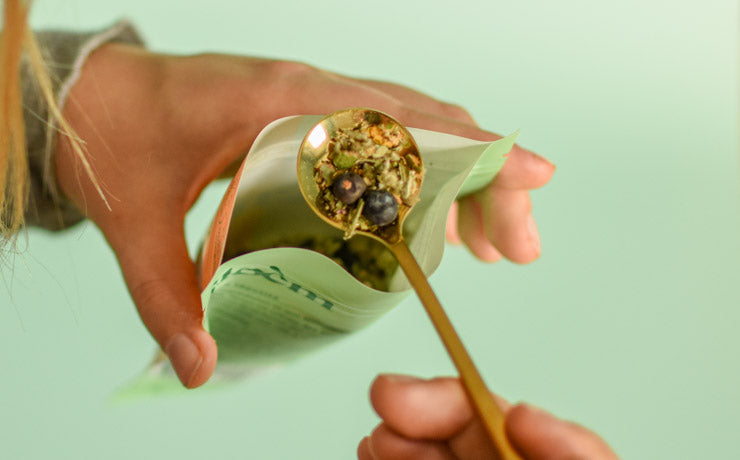
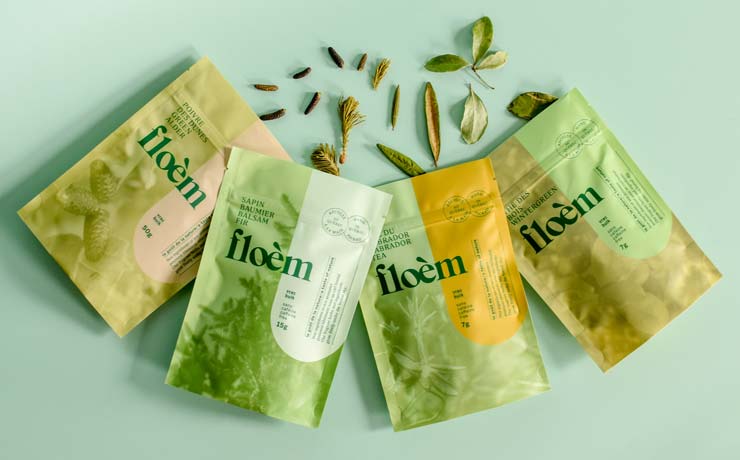
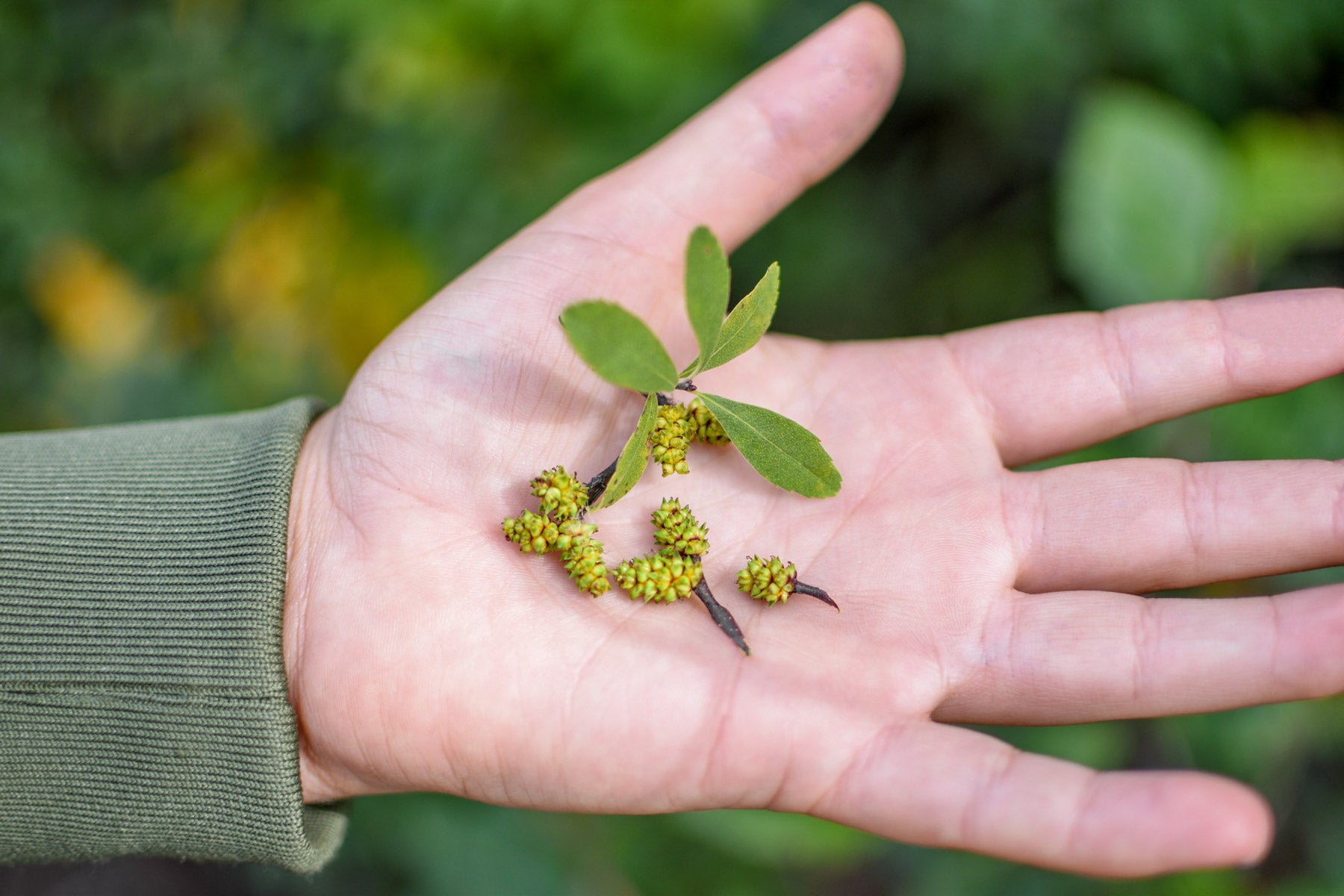




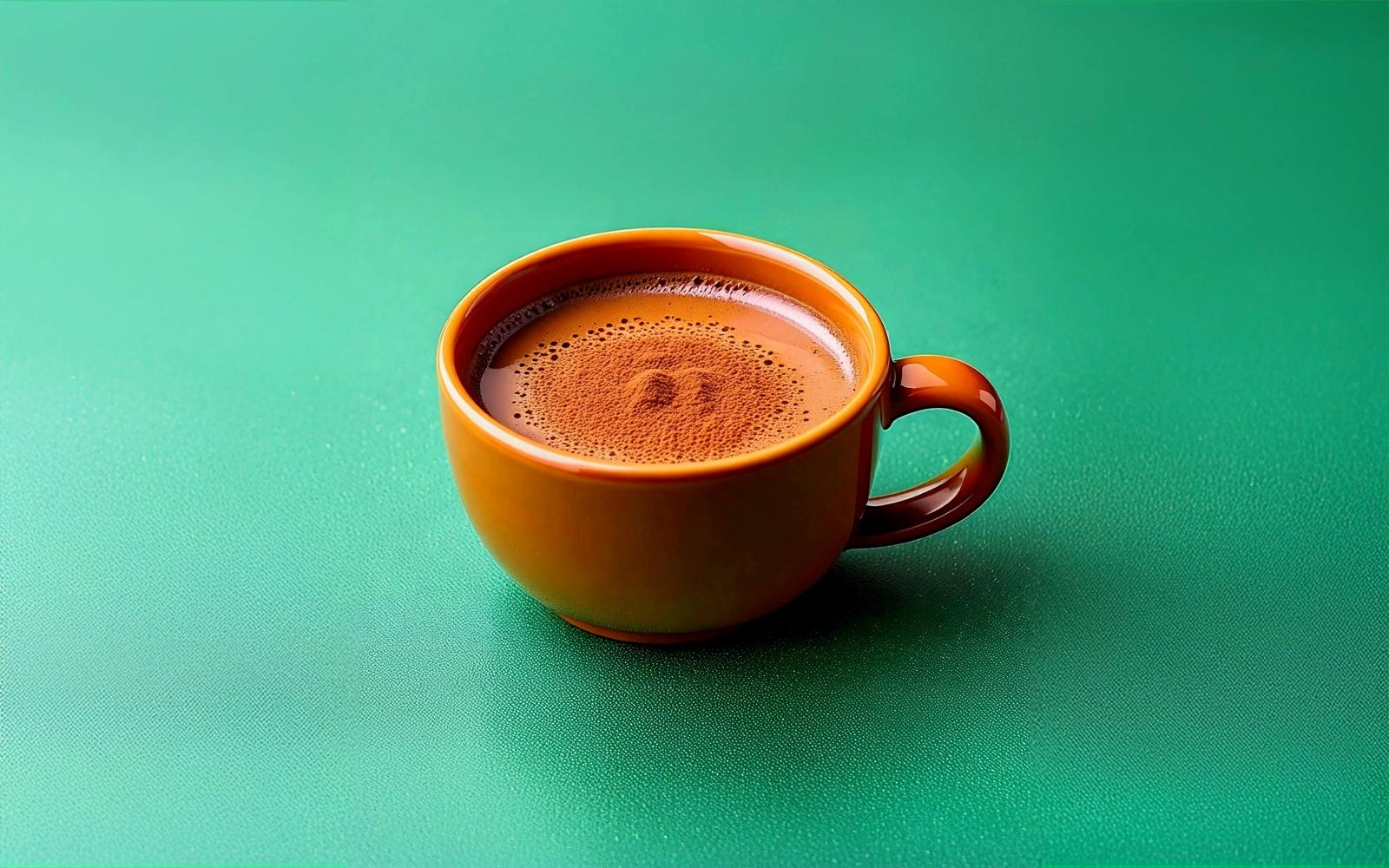
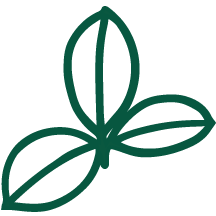


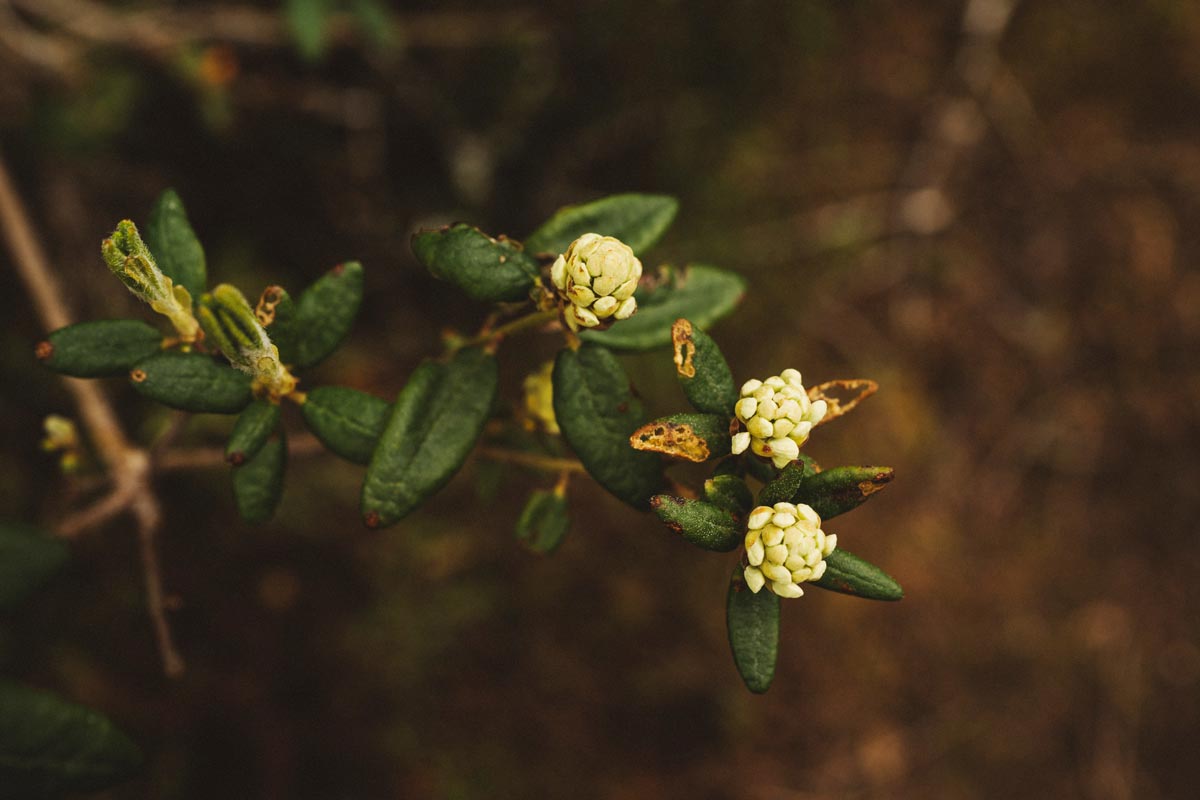
Leave a comment
This site is protected by hCaptcha and the hCaptcha Privacy Policy and Terms of Service apply.